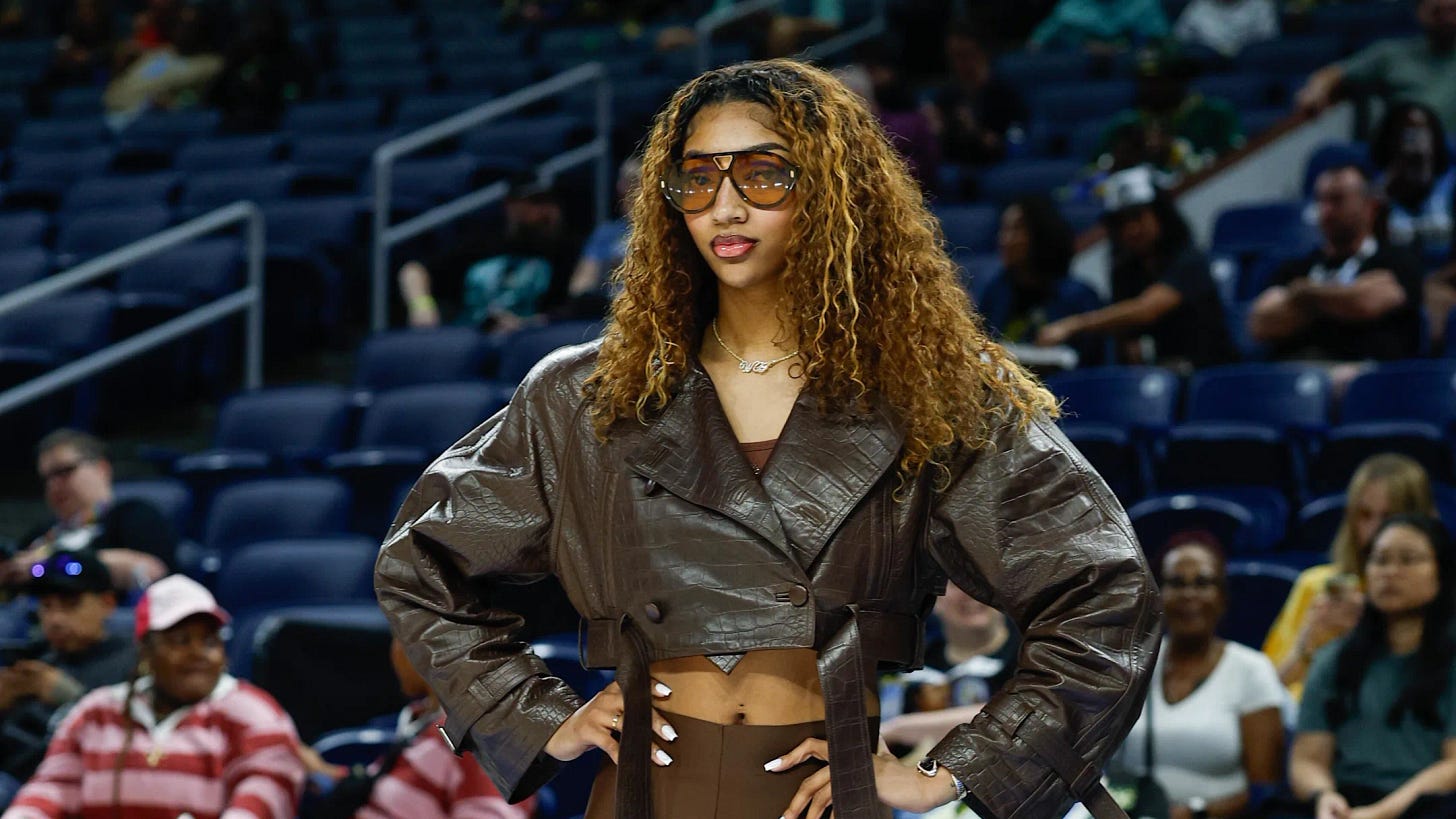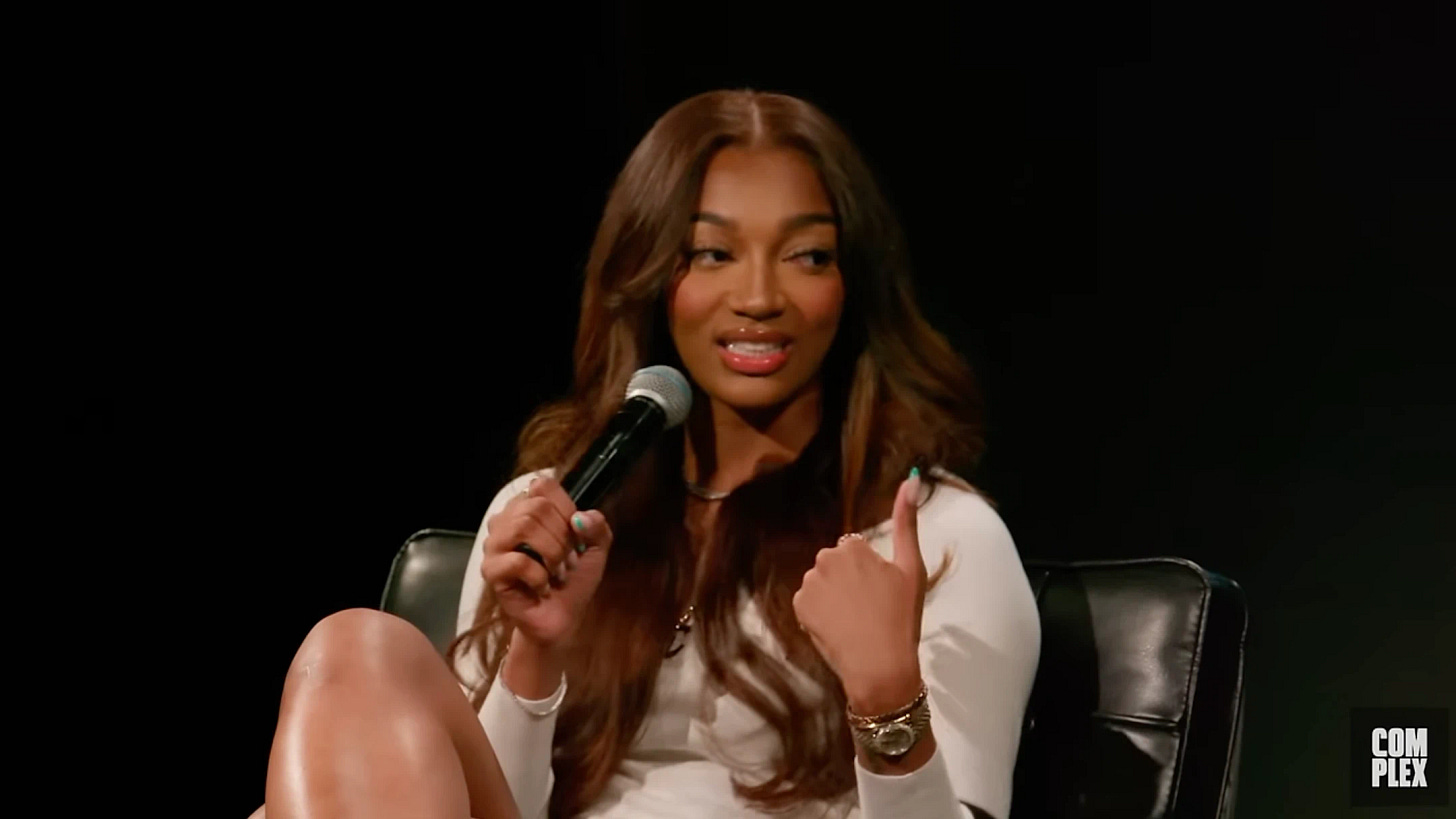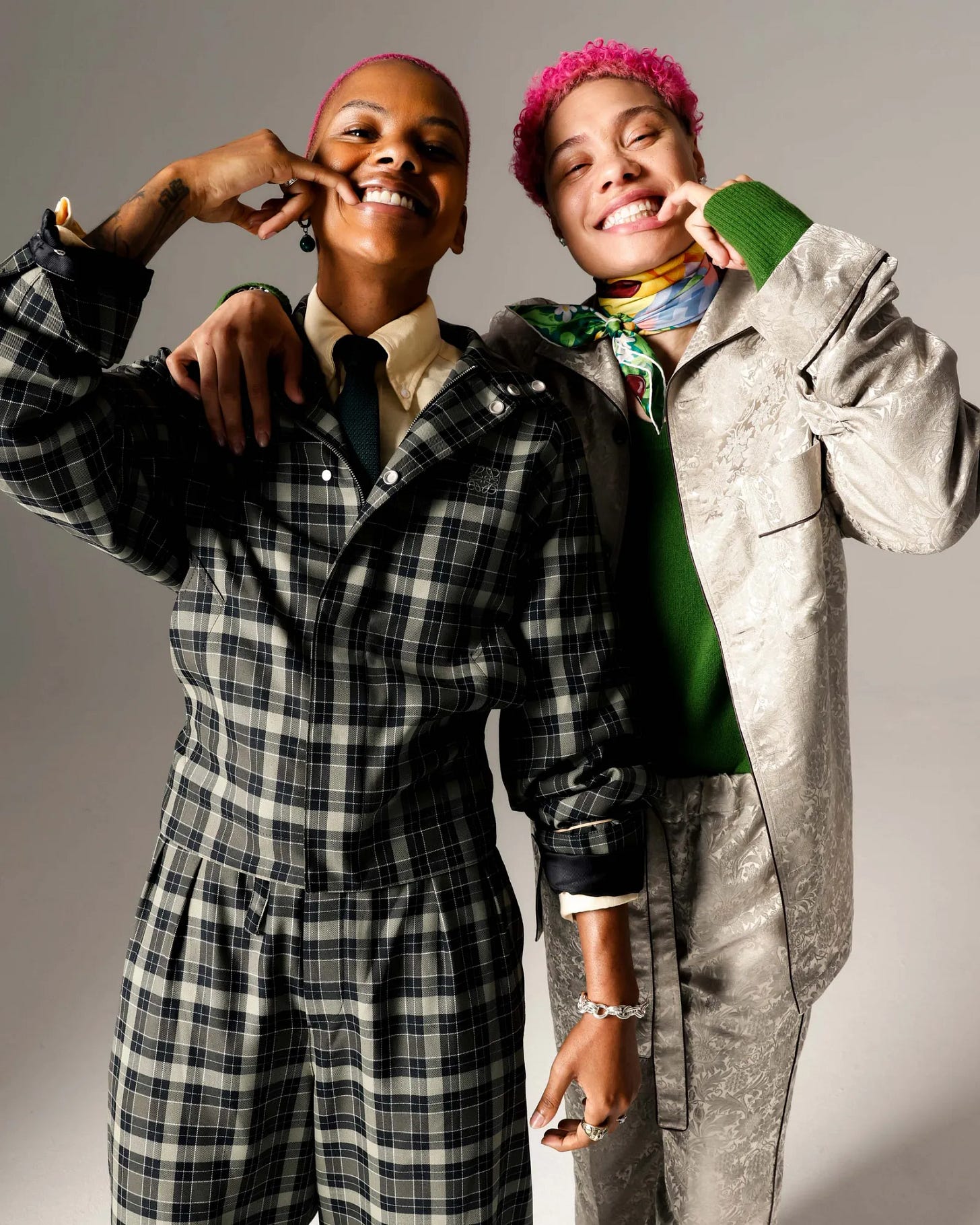Control the Story or Someone Else Will
Angel Reese’s interview fallout shows how quickly narratives shift. Plus: WNBA CBA pressure & Louis Vuitton suits up Real Madrid.
The media is a double-edged sword. Used strategically, it’s a platform to tell your story and amplify your voice. Mismanaged, it can quickly become a weapon turned against you. This week’s headlines remind us that athletes and creatives need more than talent to thrive. You need strategy, clarity, and support to ensure that your narratives don’t get twisted.
Angel Reese: The Story vs. the Spin
This past week, Angel Reese found herself at the center of another media firestorm, which led to a suspension and ultimately ended her sophomore season in the WNBA prematurely. Not because she went rogue or said something reckless — but because her words were paraphrased, twisted, and reframed to fit a narrative that plays into stereotypes. It’s a reminder of two things:
As a young, confident Black woman in the spotlight, Angel is an easy target for vilification.
Athletes and creatives must understand how media works and how to protect themselves in interviews.
What Actually Happened
Angel sat down with the Chicago Tribune, with a member of the Chicago Sky communications team present (which is standard practice and something every athlete should insist on). The interview was straightforward — no teammates were called out by name unless directly asked.
But then came the spin. Other outlets, most notably The Athletic and Front Office Sports, reframed the piece with harsher language, suggesting that Angel had “torched” her teammates. This framing fueled online negativity and reopened debates about whether she belongs in Chicago at all.
The result? A simple interview became a storm of commentary that may accelerate the end of her time with the Sky.
Why This Matters
For athletes and creatives, the lesson is clear: every interview is a high-stakes moment. Media interactions should be tools to tell your story, but if you don’t leverage them properly, they can easily become weapons turned against you. The reporter may be friendly. The outlet may seem fair. But once your words are published, they’re no longer fully yours - they’re filtered through headlines, paraphrasing, and social media takes. That’s why clarity is critical. In today’s world, where literacy levels are lower than most of us realize, even small ambiguities in how you phrase things can be warped into something you never intended.
And for Angel, the stakes are higher. As a young Black woman, she is scrutinized through a harsher lens. Confidence is labeled as arrogance. Honesty becomes “torching teammates.” Passion is framed as anger.
Protecting Yourself: How to Approach Media Interviews
So what can athletes and creatives do to avoid falling into these traps? Preparation and strategy are key.
Here are practical steps to take before and during any interview:
Have a comms rep present. Always. They can help manage the flow and step in if needed.
Prepare 2–3 key messages. Decide what you want to get across, no matter the questions.
Bridge back when needed. Example: “That’s a great question, but what I really want to highlight is…”
Know what not to answer. It’s okay to say, “I’m not going to get into that right now.”
Stay composed. Remember: tone, body language, and facial expressions all travel alongside your words.
Angel Reese is in the middle of a moment that isn’t entirely hers to control — and that’s the reality of being in the spotlight. But the lesson for every athlete and creative is this: you can’t always control the narrative, but you can control your preparation.
Your brand is too valuable to hand over to someone else’s interpretation. Protect it. Own it. And always keep the main thing the main thing.
News Updates
📌 WNBA CBA & Congresswomen Step In
The WNBA’s CBA negotiations have reached such a stalemate that the Democratic Women’s Caucus is now publicly urging the league and players’ union to come to terms. This moment underscores how much the WNBA has grown—the stakes aren’t just about basketball anymore, they’re about workplace equity and labor rights on a national stage. For athletes, it’s another reminder that collective bargaining isn’t just business—it’s brand, legacy, and leverage. [Read More Here]
👗 Louis Vuitton x Real Madrid: Fashion Meets Football
Louis Vuitton has officially become the wardrobe sponsor for Real Madrid’s women’s team, marking yet another major move from a luxury house into sports. This matters for two reasons:
It shows how much cultural weight women’s sports carry—fashion is no longer just tapping athletes as models, but aligning with full teams.
It signals the next phase of sports branding, where lifestyle, luxury, and athletic identity merge into one.
For athletes and creatives, this is the playbook: brands are no longer only interested in your performance—they’re buying into your story, your audience, and the culture you represent. [Read More Here]
🌈 The Stud Budz in Vogue: Representation Matters
Courtney Williams and Natisha Hiedeman—known as the Stud Budz—recently landed a feature in Vogue, spotlighting their style, authenticity, and influence on and off the court. What makes this moment so powerful is that it highlights masculine-presenting women in a space that has historically overlooked or tried to minimize them.
For athletes and creatives, the lesson is simple: stay true to your brand, and the right opportunities will find you. The Stud Budz didn’t shift who they are to fit into traditional expectations—they leaned in, built community, and the culture came to them. [Read More Here]
Closing Thought
From Angel Reese’s media fallout to Louis Vuitton suiting up Real Madrid, the throughline is clear: control the story, or someone else will. Whether you’re sitting down with a reporter, negotiating a contract, or aligning with a brand, the way you position yourself shapes how the world sees you—and how much they’re willing to invest.






